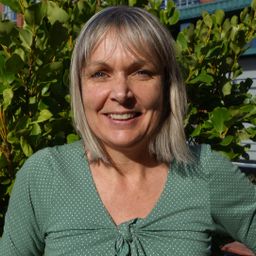09.15 Museum Practices, Indigenous Politics and Cultural Identities on Tour: A Comparative Study of a Māori Exhibition in France, Mexico and Canada
Mon statut pour la session
Key motivations for touring exhibitions from major museums include enhancing international reputations, sharing expertise, and strengthening institutional partnerships. Few studies, however, have examined the complex processes involved when culture “goes on tour” in the form of a museum exhibition, and how it functions as a site of intercultural heritage experiences and practices.
This paper will explore the experiences of museum professionals involved in a touring exhibition from the Museum of New Zealand Te Papa Tongarewa. “E Tū Ake: Standing Strong” was shown briefly in New Zealand before touring to the Musée du Quai Branly in Paris, followed by the Museo de las Culturas in Mexico City, and finally the Musée de la Civilisation in Québec, Canada, between 2011 and 2013. Created by Māori curators and exhibition developers at Te Papa, “E Tū Ake” took the approach of Māori “telling their own story.” It included traditional taonga (cultural treasures) alongside contemporary works, people and associated stories, in order to portray Māori as a living and dynamic culture. The exhibition also dealt with strong political themes such as colonialism and the loss of indigenous culture, while exploring the historical Māori struggle for self-determination, cultural revitalization, and restitution.
Drawing on in-depth interviews with museum staff in New Zealand, France, Mexico, and Quebec, as well as observations of the exhibition and related events across venues, we will consider how the exhibition functioned as a mobile “contact zone” facilitating cross-cultural encounters between professionals, practices, ideas, and objects. In the context of cultural globalization and transnational mobility, how was this form of heritage transformed and reconstructed as it traversed contrasting museological, cultural, and political terrain? How were issues of cultural identities and Indigenous politics interpreted and (re)negotiated within the different museums involved? What evidence is there that this exhibition changed the professionals and institutions it came into contact with and, if so, how and under what conditions? To what extent can we identify an evolving transnational, intercultural museum practice surrounding such exhibitions?
Our findings demonstrate that E Tū Ake was perceived as a singular project that differed from other touring exhibitions, particularly in terms of its Indigenous museological principles and its conditions of installation. It prompted dialogue and reflection around Indigenous politics, contemporary relevance, and self-representation, and implications of these for museum practice, for example in relation to the treatment of objects and relationships with source communities. The nature of this dialogue differed in important respects depending on the institutional context and its current positioning regarding Indigenous museology. This context also impacted upon the extent to which intercultural experiences (for example, knowledge of Māori culture and ways of working at Te Papa) were integrated into professional practice in the various museums. Similarly, the extent to which staff considered the exhibition as a way to showcase a culture and assert its political claims, whether of Māori culture or cultures from other communities, varied across the different venues, as did the style and emphasis of the educational and public programs.
Through a detailed, comparative analysis of these shifting processes, interpretations, and practices we aim to build an empirically-grounded, critical theory of international touring exhibitions, within the context of cultural diplomacy and transnational, intercultural museum practice. Our hope is that this work might contribute to a better understanding of the potential for this form of heritage to generate spaces in which power, identity, and globalization are performed and explored in open-minded, reflexive, and constructive ways.

